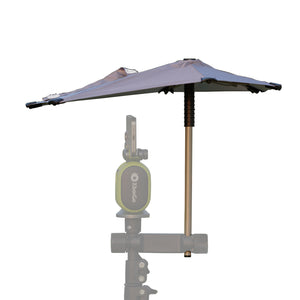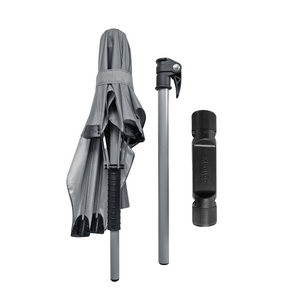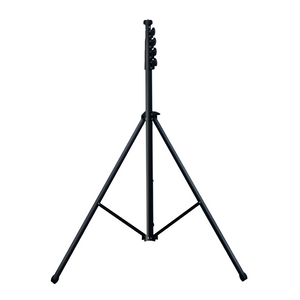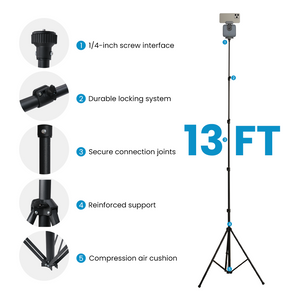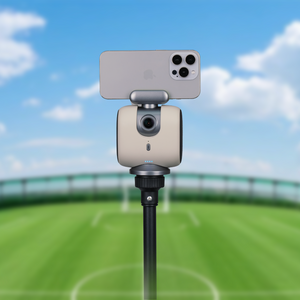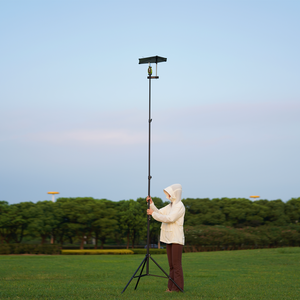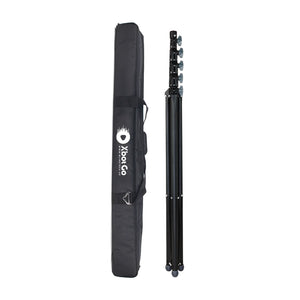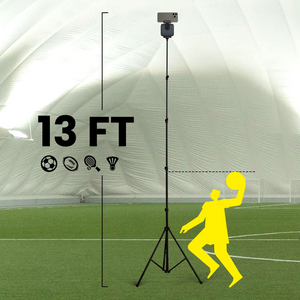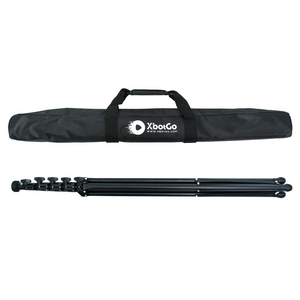XbotGo Chameleon AI Sports Camera
Best Hockey Player Ever: Why Gretzky Still Rules the Greatest Debate
The question echoes through every hockey rink, sports bar, and online forum: Who is the best hockey player of all time? It's a debate that spans generations, ignites passionate arguments, and reveals the very essence of what makes hockey great. Today, we're diving deep into this timeless discussion, armed with statistics, expert opinions, and the perspectives of fans who've witnessed greatness firsthand.
The Overwhelming Favorite: Wayne Gretzky's Untouchable Legacy
When discussing hockey's greatest player, one name towers above all others: Wayne Gretzky. Known simply as "The Great One," Gretzky's dominance transcends mere statistics—though his numbers alone could end any debate. With 2,857 career points, he holds 61 NHL records that seem destined to stand forever.
Consider this mind-boggling fact: If Wayne Gretzky had never scored a single goal in his career, he would still be the NHL's all-time points leader based on his 1,963 assists alone. That's not just dominance; that's a complete reimagining of what's possible on ice.
But Gretzky's greatness went beyond raw numbers. As a young boy, he famously traced the puck's path on paper while watching games, discovering where the puck spent the most time on the ice. This legendary hockey IQ allowed him to "see plays 5-10 seconds ahead," as teammates often marveled. He wasn't the fastest, strongest, or most physical player—he was simply operating on a different mental plane than everyone else.
His achievements include:
- 4 Stanley Cup championships with the Edmonton Oilers
- 9 Hart Trophy wins (NHL MVP)—more than any player in history
- 10 Art Ross Trophies as the league's leading scorer
- 40 regular season records, 15 playoff records, and 6 All-Star records
The Challengers: Three Legends Who Could Have Been
Mario Lemieux: The Ultimate "What If"
If Gretzky represents hockey's statistical pinnacle, Mario Lemieux embodies its greatest tragedy of unrealized potential. Standing 6'4" with hands as soft as Gretzky's and a shot more devastating than Ovechkin's, Lemieux was the perfect hockey player trapped in an imperfect body.
The numbers tell a story of breathtaking efficiency:
- 1.883 points per game (second only to Gretzky's 1.921)
- 0.754 goals per game average (ahead of Gretzky's 0.601)
- 690 goals and 1,033 assists in just 915 games
Lemieux achieved these statistics while battling Hodgkin's lymphoma, chronic back pain, and numerous other ailments. He literally received radiation treatments in the morning and scored goals that same night. Even more impressively, he carried Pittsburgh Penguins teams that lacked the star-studded supporting cast of Gretzky's Oilers to two Stanley Cup championships.
Hockey experts and fans alike wonder: What if Lemieux had enjoyed Gretzky's health and longevity? Many believe we'd be having a very different conversation about hockey's greatest player.
Bobby Orr: The Revolutionary
Before Bobby Orr, defensemen stayed home and defended. After Bobby Orr, the position was forever transformed. In a career cruelly shortened by knee injuries—he played just 36 games after age 27—Orr redefined what was possible from the blue line.
His accomplishments defy positional logic:
- Only defenseman to win the NHL scoring title (achieved twice)
- 8 consecutive Norris Trophy wins as the league's best defenseman
- Career +582 plus/minus rating in just 657 games
- Led the Boston Bruins to 2 Stanley Cup championships
Those who watched Orr play describe something transcendent. He combined offensive wizardry with defensive dominance, physical toughness with balletic grace. Many argue that prime Bobby Orr was the most complete player to ever lace up skates—a player who could control every aspect of the game from his position.
Gordie Howe: Mr. Hockey's Complete Game
Before Gretzky rewrote the record books, Gordie Howe defined excellence. "Mr. Hockey" played professional hockey across five decades, combining scoring prowess with physical intimidation in ways that modern players can barely fathom.
Howe's legacy rests on unmatched durability and completeness:
- 801 goals and 1,850 points over 26 NHL seasons
- 6 Hart Trophy wins and 6 Art Ross Trophies
- 4 Stanley Cup championships with Detroit
- Played until age 52, spanning from 1946 to 1980
The "Gordie Howe hat trick"—a goal, an assist, and a fight in the same game—perfectly encapsulates his playing style. He could beat you with skill or toughness, often both in the same shift.
The Modern Era Debate: Where Do Today's Stars Rank?
Sidney Crosby vs. Connor McDavid
The contemporary hockey landscape features its own fascinating debate. Sidney Crosby, with three Stanley Cup championships and clutch playoff performances, represents the complete modern player. His leadership, two-way play, and ability to elevate his game in crucial moments have earned him consideration among the all-time greats.
Connor McDavid, meanwhile, plays the game at a speed that seems to defy physics. With multiple 100-point seasons and a playing style reminiscent of Gretzky's cerebral approach combined with unprecedented acceleration, McDavid represents the evolution of hockey excellence. His 2024 playoff run, where he nearly single-handedly dragged Edmonton to a Stanley Cup, showcased a dominance rarely seen in the modern era.
Alex Ovechkin: The Goal-Scoring Machine
Alex Ovechkin's relentless pursuit of Gretzky's goal-scoring record has reignited discussions about offensive greatness. With his trademark one-timer from the left circle and physical style that harkens back to earlier eras, Ovechkin has proven that pure goal-scoring excellence deserves its place in GOAT discussions.
The Challenge of Cross-Era Comparisons
Comparing players across different eras presents unique challenges that make definitive rankings nearly impossible. Consider these factors:
Equipment Evolution: Today's players benefit from composite sticks, lightweight protective gear, and advanced skate technology. Gretzky and Howe played with wooden sticks and heavier equipment that would seem archaic today.
Training and Nutrition: Modern players are full-time athletes with access to sports science, nutritionists, and year-round training facilities. Earlier generations often worked summer jobs to supplement their income.
Rule Changes: The NHL has evolved from the clutch-and-grab era to today's speed-focused game. Two-line passes, obstruction penalties, and smaller goalie equipment have dramatically changed scoring dynamics.
Goaltending Revolution: The butterfly style, larger goalies, and advanced positioning have made scoring exponentially more difficult than in the high-scoring 1980s.
What Makes "The Greatest"? Defining Excellence
The debate ultimately hinges on how we define greatness. Different criteria yield different answers:
Statistical Dominance: If pure numbers matter most, Gretzky's records end the conversation.
Peak Performance: Those valuing peak over longevity might choose Orr or Lemieux at their healthiest.
Complete Game: Advocates for two-way excellence point to players like Howe or Crosby.
Revolutionary Impact: Some argue the greatest player is whoever most transformed the sport—again favoring Orr or Gretzky.
Championship Success: This metric elevates players like Henri Richard (11 Stanley Cups) or modern winners like Crosby.
The Verdict: Greatness Has Many Forms
After examining statistics, considering expert opinions, and weighing the passionate arguments of fans across generations, one truth emerges: hockey's greatest player depends entirely on your definition of greatness.
Wayne Gretzky remains the consensus choice, his statistical dominance and transformative impact on the sport creating a compelling case that transcends eras. His records may never be broken, and his influence extends far beyond the ice.
Mario Lemieux represents the tantalizing possibility of what might have been—perhaps the most talented player ever, whose career was cruelly limited by health issues.
Bobby Orr revolutionized his position and, for a brief, brilliant period, may have been the most dominant force the sport has ever seen.
Gordie Howe embodied everything hockey represents: skill, toughness, longevity, and an unmatched competitive drive.
Each brought something unique to the game, and each has a legitimate claim to greatness. Perhaps the beauty of this debate lies not in finding a definitive answer, but in celebrating the diverse forms of excellence that have graced hockey throughout its history.
Conclusion: The Eternal Debate
The question of hockey's greatest player will never have a unanimous answer—and perhaps that's exactly as it should be. Each generation witnesses its own version of greatness, from Howe's complete game to Gretzky's dominance to McDavid's modern brilliance.
Whether you argue for Gretzky's untouchable records, Lemieux's transcendent talent, or Orr's revolutionary impact, you're celebrating the extraordinary athletes who elevate hockey into something magical. In the end, we're all winners for having witnessed these masters of their craft push the boundaries of what's possible on ice.
XbotGo Chameleon AI Sports Camera
Capture every moment with AI-powered tracking. Perfect for coaches, parents, and athletes who want seamless footage without manual filming.








 Soccer
Soccer Basketball
Basketball Ice Hockey
Ice Hockey Football
Football Handball
Handball










